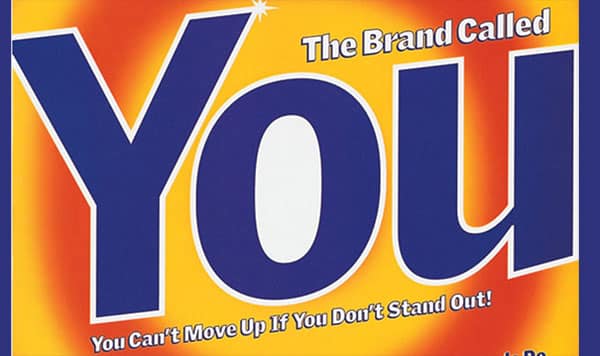How to Build a Personal Brand with Podcasts and Webinars

“Building a profitable personal brand online is not a sprint and something that happens overnight. Don’t aim for perfection early on. Instead, allow your brand to evolve naturally over time and focus on providing massive value and over deliver to your target audience. Then you will get more clarity over your message and brand as well. Always remember that!” – Navid Moazzez, lifestyle entrepreneur, and virtual summit expert.
Tom Peters coined the term “personal branding” way back in 1997. An essay published by Fast Company under the title “The Brand Called You.”
“…think of yourself differently! You’re not an ‘employee’ of General Motors, you’re not a ‘staffer’ at General Mills, you’re not a ‘worker’ at General Electric or a ‘human resource’ at General Dynamics (ooops, it’s gone!) Forget the Generals! You don’t ‘belong to’ any company for life, and your chief affiliation isn’t to any particular ‘function’. You’re not defined by your job title and yo’re not confined by your job description. Starting today you are a brand.” – Tom wrote.
Tom was right about one thing: In today’s rapidly changing world, jobs are NOT for life. But neither are companies, relationships or brands. In the article, Tom points to Arthur Anderson as a “model of the new rules of branding at the company and personal level.”

At that time, this type of pursuit was largely considered a trivial undertaking, doomed to bear little fruit, if any.
Today, building a personal brand is one of the single most important things any entrepreneur or business professional can do for their career. Even if that person is busy building a company, personal endeavors remain at the crucible of long-term success.
People will always resonate more with the messages put forth by fellow human beings than from any brand, no matter how engaging.
Because of this, personal branding can turn CEOs into thought leaders and influencers into superstars.
People like Bill Gates, Oprah Winfrey, and Tony Hsieh intimately understand and have honed the power of personal branding as they are now individually as famous as their multimillion (or billion) dollar companies.
Personal branding is what allows entrepreneurial figures to remain in the limelight long after separating from an organization.
Entrepreneurs who wish to establish their own public persona often seek out a multitude of resources; articles, blogs, books, and even podcasts themselves. One very notable offering is The Road to Recognition by notable marketing authorities Seth Price and Barry Feldman, an effective and comprehensive personal branding book that gets results.
No matter which source you gain your direction from, all will explicitly state the need to create engaging content.
In order to help you identify the most arresting content formats, we are going to examine some of today’s preeminent personal brands and the similar types of content they are creating to reach their audiences.
Webinars as a Weapon
Neil Patel is one of the most prominent and recognizable marketers today; he is basically a household name among media professionals. That’s because Neil has invested significant time and resources into establishing his personal brand through immense amounts of comprehensive and informative content.
One of the most powerful ways he delivers his value is through the use of webinars.
By hosting advanced customer acquisition webinars through QuickSprout (Neil’s business blog and traffic growth tool) along with SEO workshops and similar educational events across his personal and professional properties, he is able to build his audience from multiple directions and gain further exposure for his business and personal brand by demonstrating the value that each can provide.
Neil, however, is not the only Patel family member who sees the power in webinars; his cousin Sujan Patel (another marketing boss) has produced a variety of resources on how to drive webinar sign ups, topic identification, etc. and also hosts a plethora of his own marketing webinars to help teach other advertisers how to up their game.
If these marketing luminaries aren’t enough to convince you that webinars are a powerful driver in building a personal brand, then take a look at how advertising legend and Direct Marketing Hall of Famer, Seth Godin, is putting webinars to use in his own ecosystem.
Seth uses webinars to further his personal brand by promoting his altMBA workshop – a course that teaches leaders how to reach the next level in their journey. This not only allows Seth to use webinars as a tool for generating leads and sales, but it also enables him to display his authority as a thought leader which lends immense credence to his course and further builds awareness around his persona.
Promoting a program via webinar like Seth does is one of the most traditional uses of this technology and works fantastically well. There are, however, tons of other use cases that can help build a personal brand.
Webinar platform ClickMeeting regularly shows its blog readers how to leverage various money-making formats like affiliate marketing webinars, guest speaking opportunities, product launches, and many other types of brand-building webinars as each hold their own benefits and purpose in crafting your reputation.
The Personality in Podcasts
Most every marketer is aware of the power of podcasting. Pew Research has noted that over one-third of Americans have or do listen to podcasts; that equates to roughly 107 million people.
On top of Neil Patel’s and Sujan’s webinar pursuits, another notable delivery method for their marketing wisdom comes in the form of podcasts.
Neil’s’ Marketing School podcast provides people with actionable marketing advice to advance their careers. This not only provides value to listeners, but also continually exposes Neil to new audiences searching for this kind of content as many people enjoy digging into older episodes to uncover nuggets of wisdom they missed out on.
Neil is not the only marketing guru sharing his knowledge in this format. Gary Vaynerchuk, CEO of Vayner Media (and equally as recognizable as Neil Patel), is also extremely clear on the value in personal branding:
“It’s important to build a personal brand because it’s the only thing you’re going to have. Your reputation online, and in the new business world is pretty much the game, so you’ve got to be a good person. You can’t hide anything, and more importantly, you’ve got to be out there at some level.”
Gary produces immense amounts of personal content that he spreads all over social media destinations. But short video clips and inspirational memes aren’t all that Gary is putting out – he too has a successful podcast called The GaryVee Audio Experience.
Great new podcasts are coming until the scene now too. OKDork by Noah Kagan’s podcast (which focuses on starting businesses, marketing, and other entrepreneurial-minded subjects) started in December of last year and has already amassed a sizable audience thanks to the interesting guests and valuable insights it dispenses.
Each of these marketing luminaries understands that podcasting is the future of audio-based content.
Podcasting enables individuals to distribute value through a comprehensive library of evergreen materials that people can conveniently consume – driving in the car to work, on a morning jog, during lunch, etc.
Moreover, podcasts can often open a window to who a person really is, allowing audiences to connect with them on a much deeper level than through text alone.
Marketers aren’t the only business pros leveraging podcasts for branding purposes. Aubrey Marcus, CEO of the nutritional supplement company Onnit, has built his organization into a $28 million brand in just 5 years.
A massive portion to this success is attributed to Marcus’ personal branding efforts. Aubrey started to develop this persona and elevate his company by appearing regularly on The Joe Rogan Experience podcast. After learning the potential that this format holds, Marcus began his own personal podcast, which has now been downloaded over 5 million times.
Taking things further, Aubrey implemented a podcast for his company called The Total Human Optimization podcast, which is wholly independent of his personal one.
This is a powerful example of a CEO looking to the future and seeing that podcasting is on track to dominate radio, and many other forms of content.
These two forms of content are particularly powerful for building a personal brand. Podcasts are easily consumable and often evergreen while webinars are excellent at gaining more widespread exposure for your brand by providing in-depth value. If you’re at all comfortable speaking to small or large groups, or just an awesome conversationalist, launching webinar and podcast content is likely to catapult your personal branding efforts.
Written by: Alice Watson is a creative writer; she works in an IT house. Alice loves researching new trends and share them in her writing pieces. A writer by day and a party animal by night. Alice holds a dual degree in Creative Writing and Marketing.
Have you read?
How to Take Advantage of Customized Messages for Customer Engagement
Bring the best of the CEOWORLD magazine's global journalism to audiences in the United States and around the world. - Add CEOWORLD magazine to your Google News feed.
Follow CEOWORLD magazine headlines on: Google News, LinkedIn, Twitter, and Facebook.
Copyright 2025 The CEOWORLD magazine. All rights reserved. This material (and any extract from it) must not be copied, redistributed or placed on any website, without CEOWORLD magazine' prior written consent. For media queries, please contact: info@ceoworld.biz








